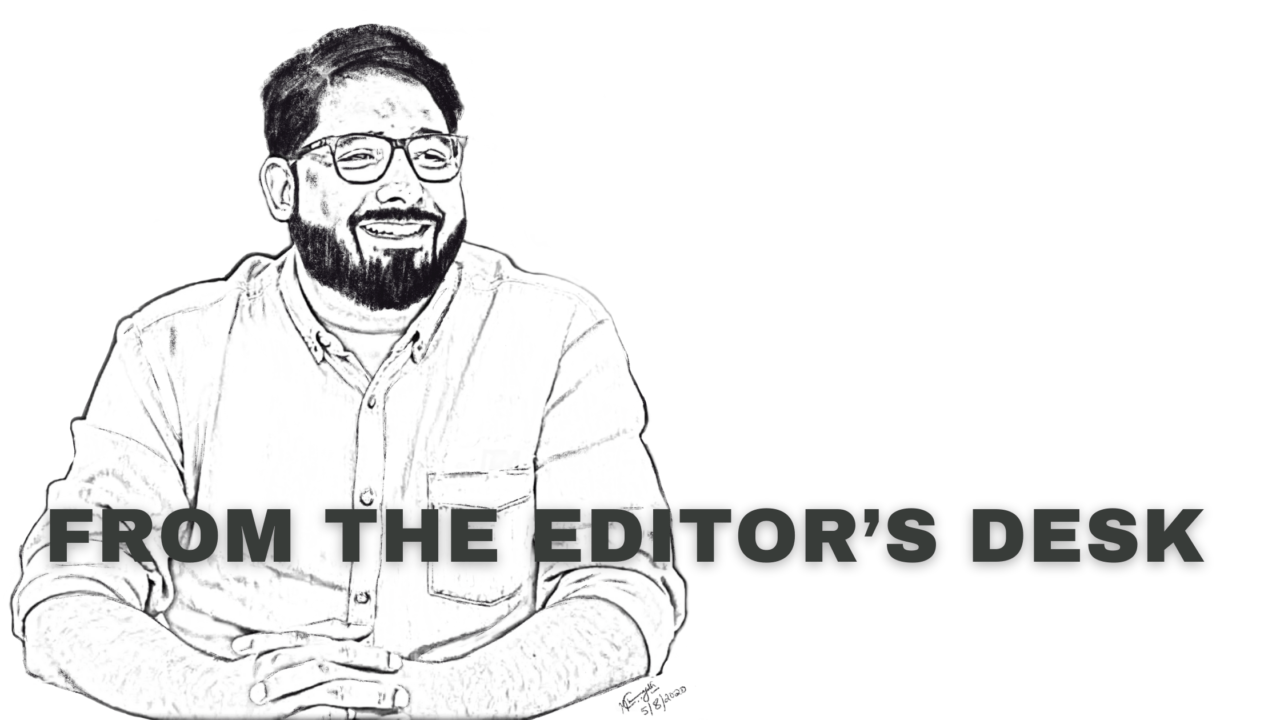We at WFY are deeply saddened and shocked by the sudden demise of our beloved Fr. Amirtha Raj OP. He was a guide and mentor to us. I spoke to him on the eve of his death as he completed the second part of the article and had emailed it to me. He never left anything pending. I’ve been told that in the last few days of his life he connected with many of his friends. I didn’t knew that it’d be my last conversation with him. May his soul rest in peace. We at WFY and Indian Diaspora will miss him.
So far this has been indeed a very difficult time for most of us. The pandemic continues to affect our lives and like true human we’re all trying to adopt the ‘new normal’ as quickly as possible. Believe me this itself is one of the most difficult thing to do. World around us is changing rapidly, transition is the new experience of living a normal life. Yet I’m hopeful that the end of the pandemic is near soon.
Billions of people have been vaccinated against COVID. Although the world is expecting normalcy, the fact of the matter is that the improvement hasn’t been promising enough. Millions of people have lost their lives due to the COVID Pandemic. There’s no doubt that the Omicron variant is still a matter of concern.
Now that we’re starting to move forward living the new normal life, let’s think about what went right and what went wrong over these testing times. Important lessons should be learned from the world’s pandemic response that will make us better prepared in the coming times. The pandemic has continued to wreck our lives longer than anticipated, yet there are lot which has gone well. The progress we’ve made on vaccines is outstanding. It has never been made and distributed a vaccine for any disease faster than it did for COVID. I hope we find ways to deploy cheap and easy measures like masks and sanitization protocols much faster. Also may the governments of the world find greater wisdom and understanding of the right opportune to deploy much taxing strategies like lockdowns and related restrictions.
Although preventing and restraining the advance of a pandemic is something that finally falls on systems and governments, but it is the individuals that could make a real impact. Incredible people from across the globe step up to do mountainous as well as heroic work protecting their communities from health workers to teachers to government officials to emergency service providers, it’s a never ending list.
If we take the world scenario especially the developed and developing countries, it is sad and disheartening to see the inequity of vaccine being allocated. I can’t agree more that an outstanding job is done as in manufacturing and distributing billions of doses of vaccine, but sadly so few people at high risk in low-income countries have received them is completely disheartening. What sense does it make that so many low-risk people got vaccinated before we vaccinated everyone that’s older or had an underlying medical condition.
It is very important that we find more ways to combat disinformation. It clearly impacts people’s willingness to get vaccinated. There is a huge trust deficit being developed in almost all parts of the world. This trend is growing and declining trust makes it harder when it comes to face huge challenges. I like to be optimistic but at the same time it should not be at the cost of ignoring problems. The pandemic has been a massive test of governance and governments need to act swiftly to prevent the next or another pandemic or a natural or climate disaster waiting to happen. The trust deficit is increasing all across the world. When you have such a pandemic, people do tend to look for someone to blame. Governments are an obvious target.
It’s clear that the digitization pandemic has forced upon us is here to stay. These challenging times have led to humongous leaps forward in the way we use technology, also accelerating changes that would’ve taken years. Widespread adoption of services that already existed, like ordering groceries online or having meetings over video chat and of course work from home as well online education was rather rapid. Now more and more teachers rely on digital tools to give students assignments and to enhance the way kids learn.
In healthcare, more and more people are opting for virtual appointments instead of in-person care. There are much technological options available now that facilitate virtual health services and more improvements are on the cards.
We human beings are inherently resistant to change, it’s never easy to adjust to new ways of living. People are usually afraid of the change because they fear the unknown, irony is that change is constant. The world has adapted to before, and I’m optimistic that we’ll do it again settling into a NEW NORMAL
Let’s sail through this together…
